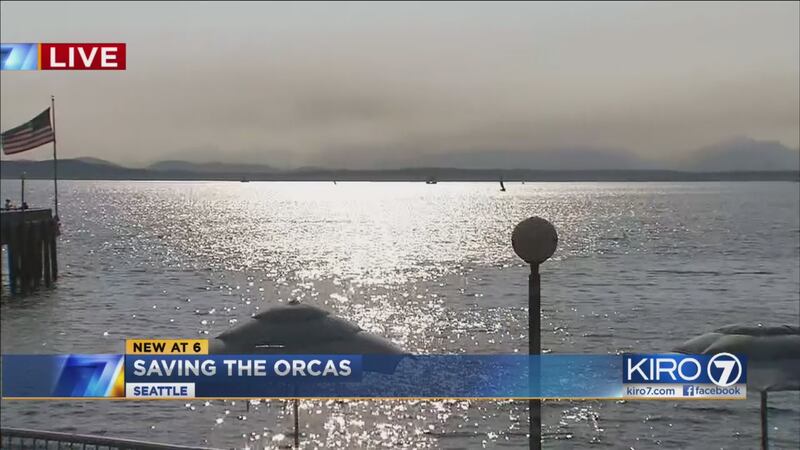The plan to save a starving orca known as J-50, possibly by giving her fish, was on hold Monday because scientists were unable to find her pod.
That rescue effort will come after another orca, known as Tahlequah, carried her dead calf for days.
"Now is the time to really take bold actions. I think that's been the story for the last 10 days," said Mindy Roberts, of the Washington Environmental Council.
She's among more than 30 members of Gov. Jay Inslee's task force, which meets in Wenatchee on Tuesday.
This fall, the group will make recommendations for saving southern resident killer whales.
"While I hate to see the orcas in such a terrible situation, this is really focusing the community on some of these issues we've been working on like nothing ever has," said Jacques White of Long Live the Kings, which advocates for wild fish recovery and sustainable fishing.
Chinook salmon are the primary food for southern resident orcas, but chinook have long been in trouble.
White says cutting back on fishing for chinook offshore before they reach orca feeding areas might make sense.
"I'm afraid they're going to pin this on fishing, and right now harbor seals are the number one consumer of our salmon stocks," said Ron Garner, of Puget Sound Anglers.
Last year, federal scientists found sea lions and harbor seals ate more chinook than the combined take of commercial and recreational fishers.
"Nobody wants to address the predation on the salmon," Garner said. "If you fix the salmon, you fix the orca problem."
Some have suggested shooting seals and sea lions.
Other short-term ideas including cutting back on whale-watching boats and other vessels that create noise and setting up a system where anglers catch live salmon and hand them over to be fed to orcas.
Long-term ideas include restoring habitat for salmon and forage fish, taking out dams and reducing pollution that gets into the blubber of orcas.
Cox Media Group








